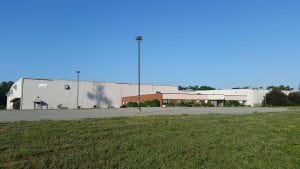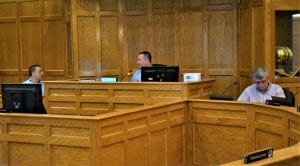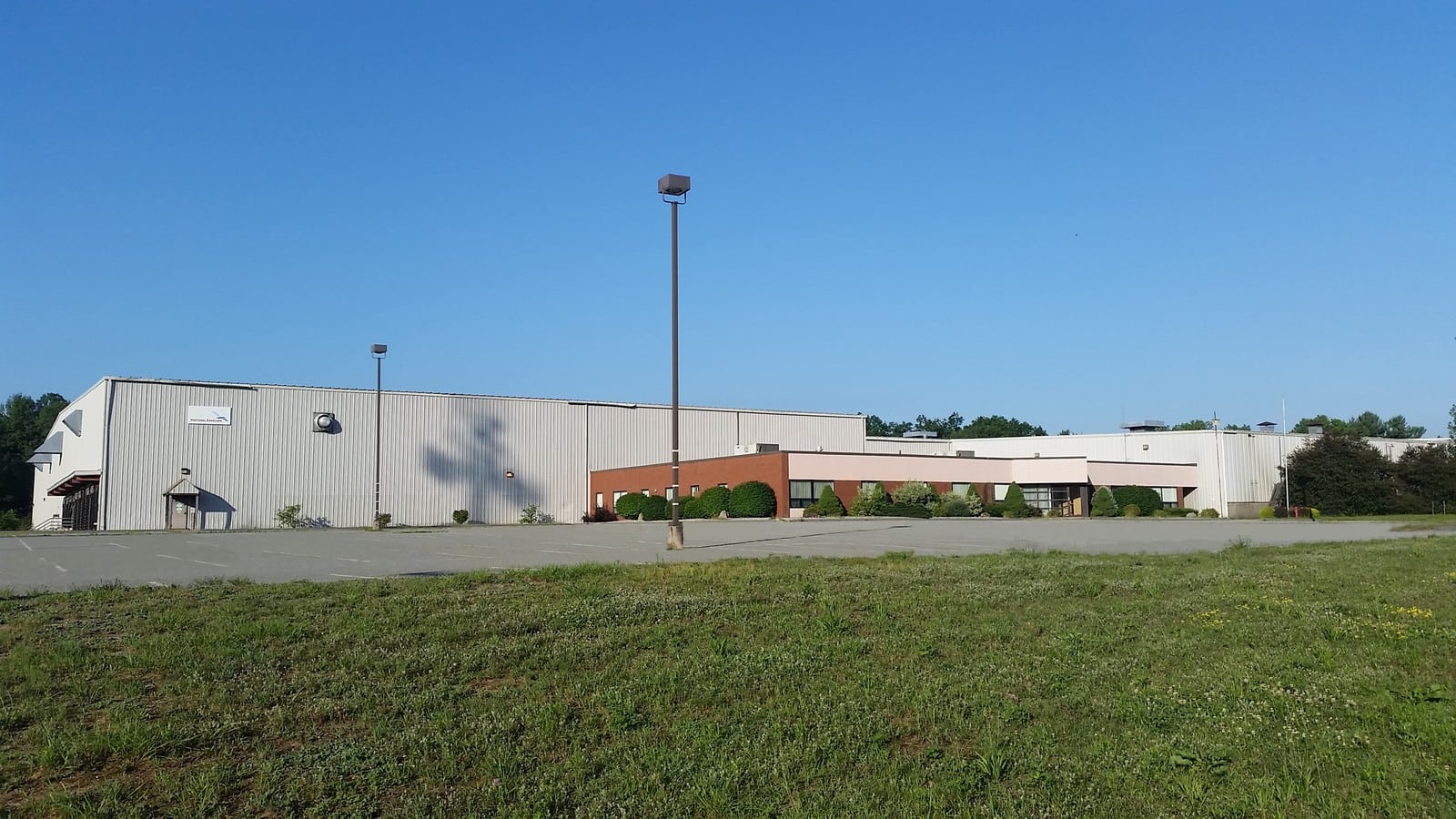
The site of former Old Colony Envelopes, 70 Turnpike Industrial Road, which James Hardie Building Products purchased in August, 2018. (City of Westfield photo)
WESTFIELD – The Legislative & Ordinance Committee looked at the tax increment financing (TIF) proposal for James Hardie Building Products, Inc. at 70 Turnpike Industrial Road Wednesday. Joe Mitchell presented the proposal that Mayor Brian P. Sullivan and he as city advancement officer offered to the company, located at the site of Old Colony Envelopes, pending City Council approval.
Mitchell said the company purchased the building in August of 2018, and is investing $12 to $18 million in equipment and infrastructure for a single production line. Raw materials, long boards, wood pulp and sand will be coming in by train from the south to Westfield, where the company will apply texture and color to the raw boards, to ship out the made-to-order product by truck.
Mitchell said the company will create 25 to 35 full-time positions within three years. He said the TIF being proposed will not involve the current production plan, as they are using the existing building, and paying $175,784 in property tax.
He said the company would plans an additional 100,000 to 164,000 sq. ft. in five years to the eastern and western side of the building, which Mitchell said would increase its value, and invest another $12 to $18 million to create a second production line, adding an additional 10 to 20 FTE.
Mitchell said the jobs being created are good manufacturing jobs without the highly specialized skills required by some other Westfield manufacturers, and the company will offer on-the-job training.
Mitchell said the city is hoping James Hardie will do the expansion, which will depend on the economy. He said the city is partnering with them to offer a 50% tax exemption over five years on the expansion. The agreement averages 50% over the five years, but at a graduating rate, beginning at 75% exemption in the first year to 25% in the fifth year.
The total value of the exemption will be $708,978 over the five years, but the city will collect an equal amount of an additional $708,978 over that time, and the exemption will expire on the sixth year.
Mitchell said the TIF requires seven votes by the City Council for approval to allow the mayor to enter into the agreement, which states that the city will exempt 50% of increased property tax if James Hardie will create an addition of at least 100,000 sq. ft. and add at least 10 additional employees.

Councilors Morganelli, Onyski and Burns at Legislative & Ordinance committee. (Photo by Amy Porter)
“None of this will happen if the expansion isn’t built,” asked L&O Chair William Onyski. Mitchell said this is correct and the agreement would expire in 2029.
At-large Councilor Nicholas J. Morganelli, Jr. noted that by year four of the TIF, the city will be collecting almost double in taxes what it is collecting now. “I think it’s fair. They’re investing in Westfield,” he said.
Morganelli asked what happens if after six years the company moves out of Westfield. Mitchell said once the investment is made in the building, the city will still collect the higher property tax on that building.
Ward 4 Councilor Michael Burns said he didn’t like the 75% tax exemption the first year of the agreement.
“It’s 75% of what we don’t own now. If they don’t build the addition, we will collect $176,000 forever,” Mitchell said, referring to the current annual property tax on the existing building.
Burns called the TIF a “dream,” which “might happen.” Mitchell said the arrangement is for a proposed future expansion from the company, and the numbers are actual projections from the assessor.
Burns asked what would happen if the TIF were defeated. Mitchell said they’re in at the current production level. Burns said then why give them a TIF.
“If people come to Westfield with the idea of a 160,000 sq. foot facility, I would hope we would give them all a TIF. If we partner with somebody and give them a TIF for four or five years, we’ll get it on the back end. That’s why these tools are there,” Mitchell responded, adding, “Even with the TIF, we’ll collect revenue that wasn’t there.”
He said the mayor and he negotiated a 50% agreement over five years. He said the council used to do a flat 50% over five years, but now the first year is bigger to give companies a bigger exemption up front, then less and less, to show positive growth in revenue in the city on the back end.
Morganelli asked how many more trucks there would be if the company expands, noting the concern in Ward 1 on increasing truck traffic.
Mitchell said the city met with Ward 1 Councilor Mary Ann Babinski at several planning meetings, and said while she wasn’t thrilled, the fact that raw materials are coming in by rail and materials going out one way by trucks is less impactful. He said with an expansion, there would be more trucks.
Morganelli then made a motion for a positive recommendation on the TIF to the City Council, which passed 2 to 1, with Onyski and Morganelli in favor, and Burns opposed. The agreement is on the agenda at Thursday’s City Council meeting.
After the discussion, Babinski said she had met with them a couple of times. “They said they were going to use the existing building, and bring in materials by rail,” she said, adding, “We have to still concentrate on controlling the amount of traffic on the north side.”








